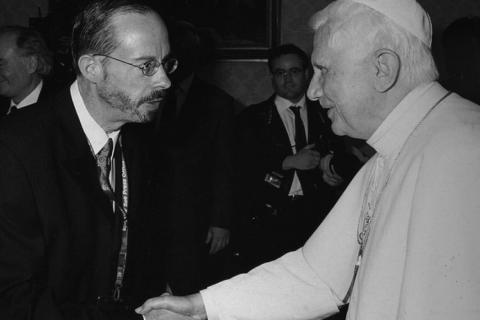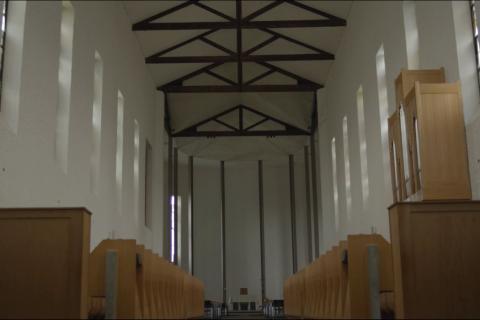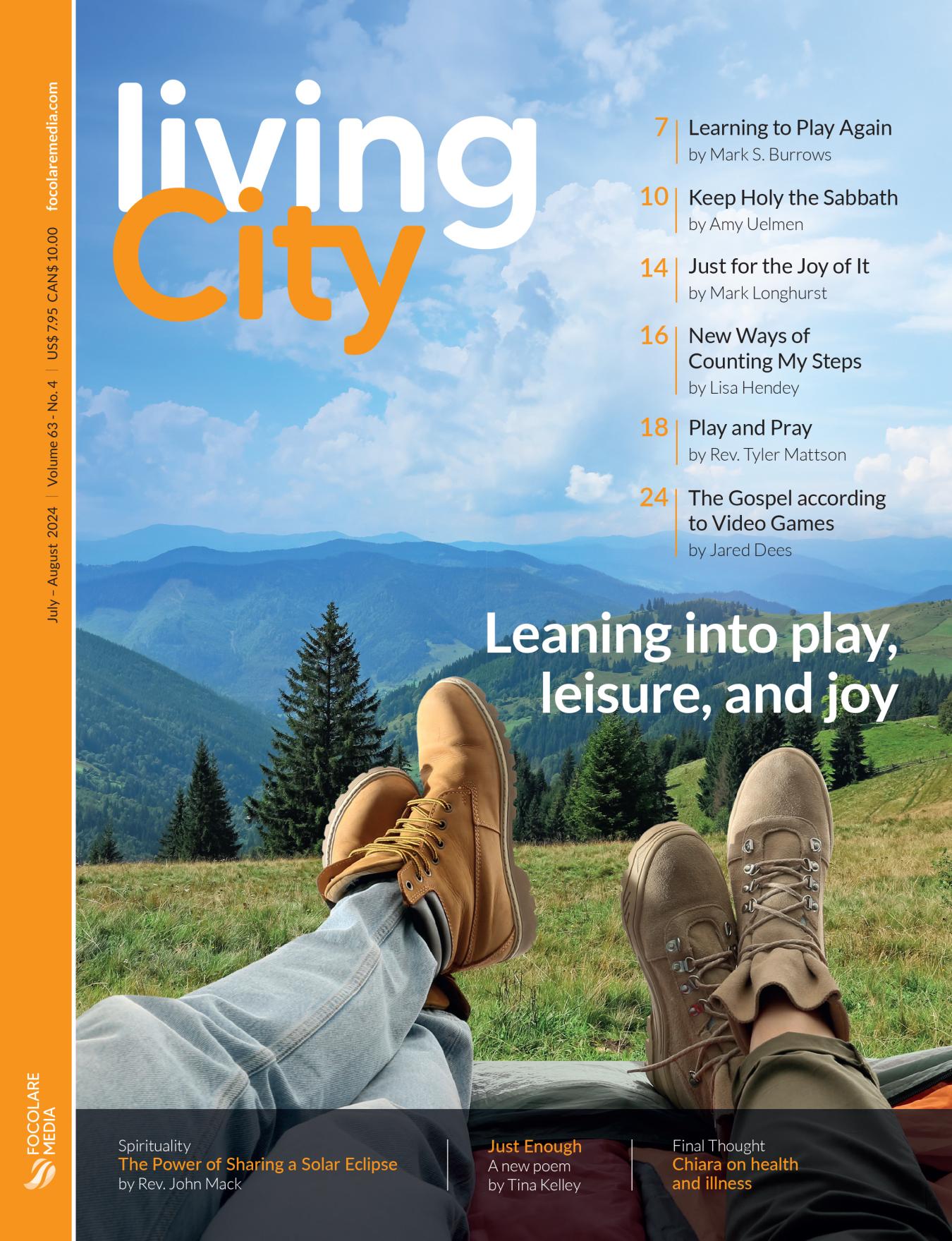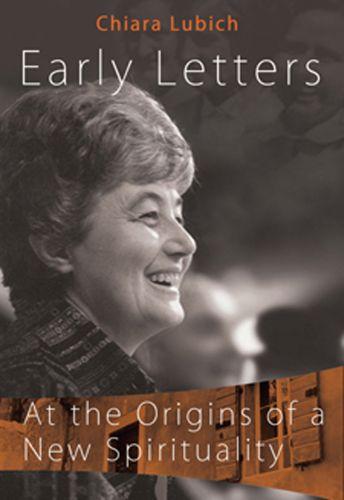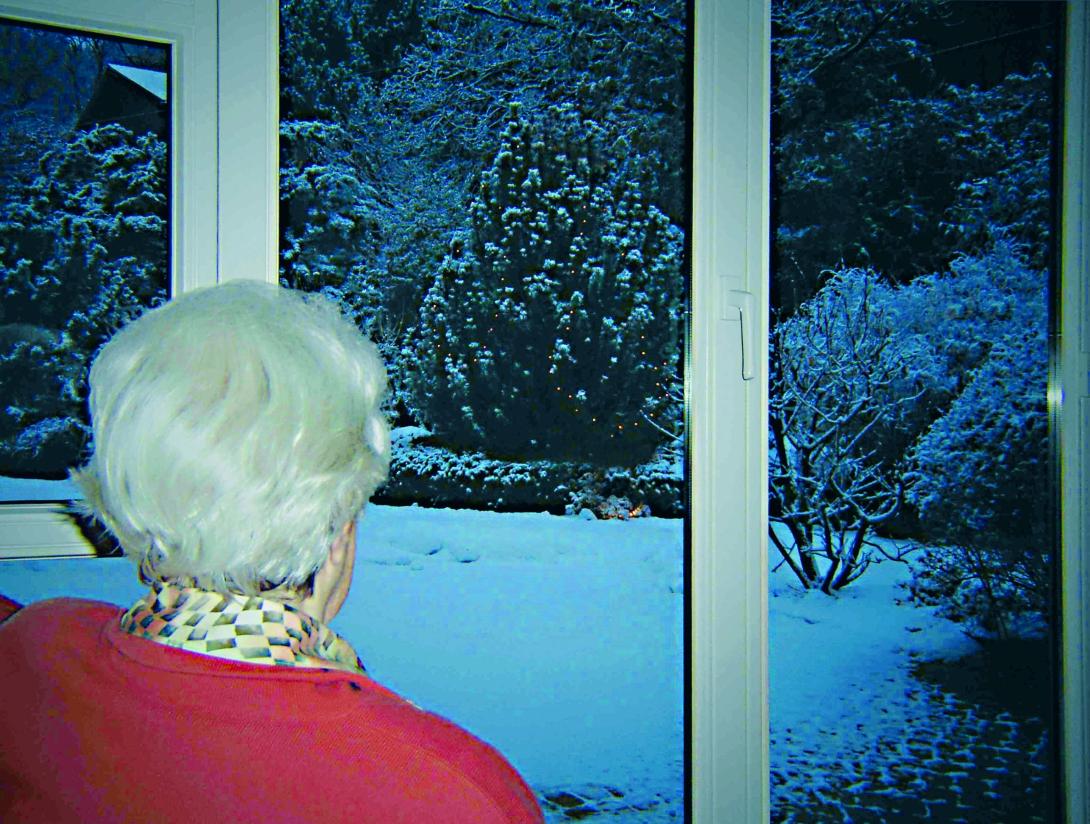
Photo by Cittá Nuova
Pain is hard to describe, especially in its most extreme forms. Perhaps it touches the “nothingness” that permeates the mind and psyche, and enfolds the soul.
Starting in September 2004, Chiara Lubich began a totally new and indescribable experience—with respect to previous situations—one that was at the same time profoundly human.
Perhaps she was living out with unprecedented harshness the prayer that as a young woman she had addressed to God, whom she had discovered as love. “You are everything; I am nothing.”
“To be nothing” is an expression that appears in a song that was often sung in the early days of her experience, which expressed a fascination with a limitless love. “And all creation says to you: You are everything. And everything says of itself: I am nothing.”
It turned out to be a lengthy period of her last years, during which words, which Chiara had used abundantly for years to enter into a relationship with God and with others, became rare. However, those rare words veiled a meaning that went far beyond the words themselves.
These words at times seemed difficult, such as when, for example, Chiara affirmed, “I am no longer Chiara, I am Silvia,” indicating her baptismal name that she used before taking on the name Chiara. It was almost as if she were erasing her entire “divine adventure,” which, starting with her radical choice of God, had led her to carry and communicate a charism that had engaged millions of people and brought about a new reality in the Church and society.
The saying goes that love makes us alike: perhaps (others might have more authority and competence to say this) Chiara’s love for Jesus made her even more similar to him, of whom it is written that “he emptied himself” (Phil 2:7).
History, not only spiritual history, and literature, not only mystical literature, offer us similar experiences. Every one of these stories reaches us with its own language, in some ways similar, in some ways different and original.
Let’s read what Chiara wrote about what she was experiencing:
“The night of God. I have come to realize that it is a new opening onto God, an opening of a different degree. It is not only a matter of the cry of Jesus Forsaken (see Mt 27:46) and of all the sufferings, especially the spiritual ones. In the night of the spirit, one senses at least the presence of God and the accompanying suffering.
“This instead is another kind of night: the last one to be experienced on earth. What does this mean? The soul experiences solitude; it is lacerated by incredible sufferings. ‘Who can I turn to? Who can I lean on?’
“Above all, one no longer feels God’s presence. In this sense: God has gone far away, He too goes towards ‘the sea’s horizon.’ We had followed him up to there, but beyond the sea, beyond the horizon, God plummets and can’t be seen anymore. That is how it seems.
“So while I once believed that the nights of the spirit ended by loving Jesus Forsaken on the cross, I realized that at this point you enter into Jesus Forsaken.
“With his cry, Jesus, in a certain sense, reprimanded the Father. And here too the soul, enveloped in an immense sadness, is tempted to blame God.
“We should speak of ‘over the edge,’ where God cannot be seen anymore, and the soul sinks so far down in this night that for months and months it loses everything, everything, everything.
“The soul cries out, but faith doesn’t create anything for it. It pleads for graces, but they don’t exist anymore. Truly they no longer exist. This is intolerable. I never knew this. I came to know it in these months.”
And yet this profound inner darkness and the great physical weakness would not have the final word. One proof of this is the honorary doctorate in theology awarded to Chiara Lubich by Liverpool Hope University. On January 5, 2008 the rector of that academic institute went personally to Rocca di Papa, to the house where Chiara lived, to confer it in a private ceremony.
A few weeks earlier, a dream that Chiara had nourished since her youth had come true. It regarded her irrepressible, passionate search for truth. On December 7, 2007, the Sophia University Institute was inaugurated in Loppiano near Florence, Italy.
The institute reflects Chiara’s choice of God as the ideal of her life. It is God discovered anew as love, which imbues and expands even human intelligence, illuminating every aspect and field of knowledge.
Sophia: a special kind of classroom
In this school, you will obtain wisdom above all in this way: through Jesus present among you. And even if you learn about other subjects, like philosophy, theology, economics, natural sciences, medicine, politics, etc., all of them cannot but be imbued with wisdom.
The courses in this school, as in all schools, will take place in a classroom. But what should the true, ideal classroom be for a school of this kind? I have no doubts! The classroom that will guarantee the wisdom that we want to have is one alone: the bosom of the heavenly Father. We must be worthy to enter there and make it our dwelling place. The charism that has been given to us makes this possible.
And even when you leave this classroom made of walls, you must never leave that other classroom, because that, I believe, would lead to the failure of this school. If by any chance you should happen to go out of that room [the bosom of the Father], you should return to it immediately.
Furthermore, this school will have only one teacher: Jesus in the midst of all of you, among you, among the professors, between you and the professors.
So you will find that you are all equal, as Jesus wants, all brothers and sisters in a Trinitarian relationship, through the mutual love between professors and students, even though the professors will be like the Father (in the Trinity that you are forming together) and you will be like the Son. Consequently, you should allow yourselves to be “generated” by them, but you will also have to respond to them with your love.
You can enter this classroom only if you meet certain indispensable requirements that were suggested in "Paradise 1949" [a period of special understanding of the new charism].
First of all, you have to wear the uniform of this school, which is the Word [of God]. You have to live the Word, allow yourselves to be lived by the Word, and you will share your experiences of putting the Word into practice…
This living the Word, which is the only way to have access to paradise in the bosom of the Father, is your personal contribution.
But there is also a communitarian, collective contribution. To live Jesus Forsaken [see Mt 27:46] as the condition for achieving mutual love among yourselves, between you and the professors, and so on, will be your communitarian contribution.
From Chiara Lubich’s address to students at the Sophia Summer School, a prelude to the university, August 15, 2001


